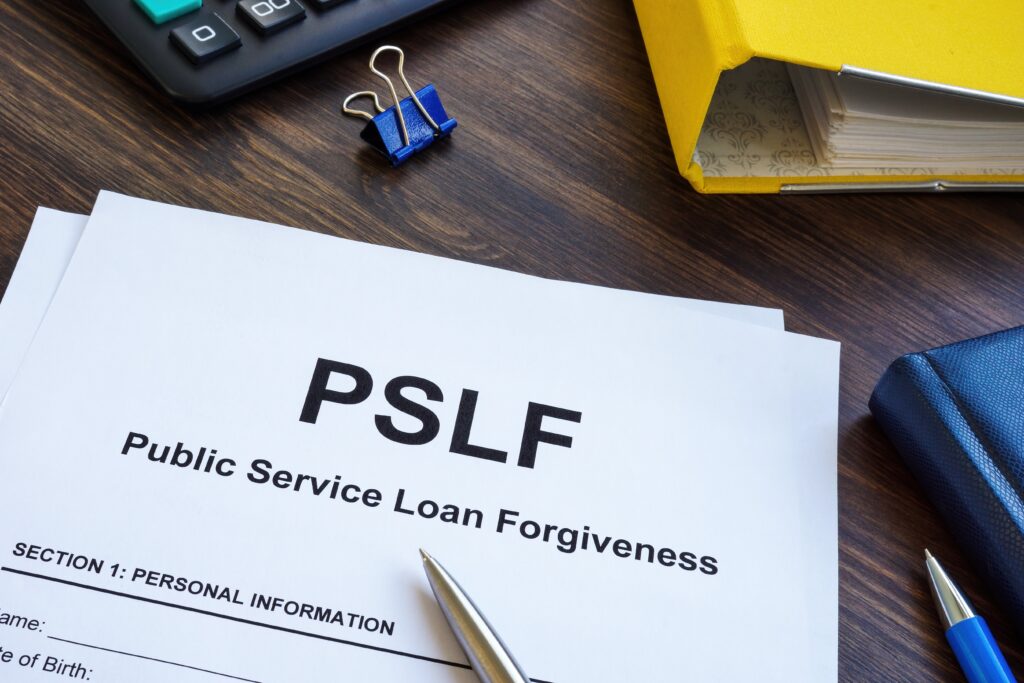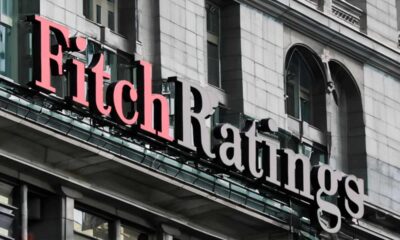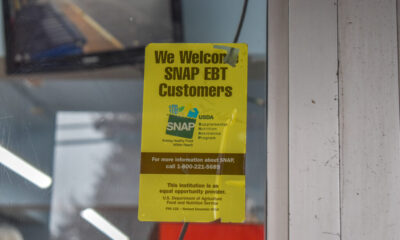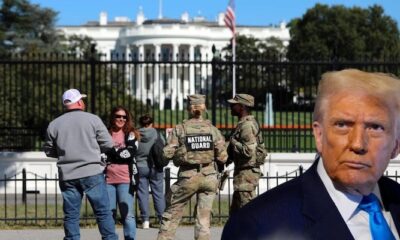Science
New Student Loan Rule Faces Backlash Ahead of 2026 Implementation

A forthcoming regulation from the U.S. Department of Education is set to tighten eligibility for the Public Service Loan Forgiveness (PSLF) program, sparking widespread criticism from various advocacy groups and legal challenges. The rule, slated to take effect on July 1, 2026, grants significant discretion to the Secretary of Education in determining which organizations qualify for loan forgiveness aimed at public service workers.
The regulation specifies that employers involved in “unlawful activities such that they have a substantial illegal purpose” will be excluded from the PSLF program. This has raised concerns that the rule targets organizations whose missions do not align with the priorities of former President Donald Trump. Critics argue that the language of the rule, which addresses issues like gender-affirming care and immigration, is politically charged and intended to enforce the Trump administration’s agenda.
At least three lawsuits have already been filed by a coalition of Democratic attorneys general, cities, labor unions, and nonprofit advocacy groups. They contend that the regulation is overly vague and exceeds the authority of the Department of Education. Winston Berkman-Breen, legal director at the advocacy group Protect Borrowers, emphasized the potential negative impact of the rule not only on institutions but also on individual public service workers. He stated, “It’s also the individual financial health and security of borrowers and their households that will be really, really detrimentally affected by this rule.”
Understanding the Public Service Loan Forgiveness Program
Established by Congress in 2007 through the College Cost Reduction and Access Act, the PSLF program incentivizes graduates to pursue careers in public service by forgiving remaining student debt after they make 120 qualifying monthly payments while employed by an eligible employer.
The new regulation stems from a March executive order and will only apply to future employment. Workers will retain credit for any payments made before the effective date. The Secretary of Education will have the authority to determine if an employer has engaged in illegal activities, which could disqualify them from the program. Such activities include “aiding and abetting” illegal immigration, supporting terrorism, and violating state laws.
Criticism and Legal Challenges Ahead
Critics argue that the administration’s framing of the rule as a response to criminal activity is misleading. They see the disqualification criteria as a means to target organizations that support immigrant rights, gender-affirming care, and other progressive causes. Berkman-Breen pointed out that the administration has targeted these issues in various sectors already, suggesting that the PSLF regulation is part of a broader attack.
In response to inquiries, Nicholas Kent, Under Secretary of Education, defended the regulation, stating, “This is a commonsense reform that will stop taxpayer dollars from subsidizing organizations involved in terrorism, child trafficking, and transgender procedures that are doing irreversible harm to children.” He reiterated that the Department would implement the rule impartially, without regard to the mission or ideology of the employers involved.
The implications for employers, particularly nonprofits, could be severe. Michele Zampini, associate vice president for federal policy and advocacy at the Institute for College Access & Success, warned that the final rule could detract from nonprofits’ missions and hinder their capacity to attract and retain staff. “If people don’t have that option… it becomes a lot harder to kind of attract people to those roles,” she noted.
As legal challenges mount, including lawsuits filed on November 3, 2023, in a Massachusetts federal court, the future of this regulation remains uncertain. With multiple states and advocacy groups joining forces against the policy, the outcome could significantly affect the landscape of student loan forgiveness in the United States.
-

 World3 days ago
World3 days agoCoronation Street’s Shocking Murder Twist Reveals Family Secrets
-

 Entertainment4 months ago
Entertainment4 months agoKate Garraway Sells £2 Million Home Amid Financial Struggles
-

 Entertainment3 months ago
Entertainment3 months agoAnn Ming Reflects on ITV’s ‘I Fought the Law’ Drama
-

 Health3 months ago
Health3 months agoKatie Price Faces New Health Concerns After Cancer Symptoms Resurface
-

 Entertainment3 weeks ago
Entertainment3 weeks agoCoronation Street Fans React as Todd Faces Heartbreaking Choice
-

 World4 weeks ago
World4 weeks agoBailey Announces Heartbreaking Split from Rebecca After Reunion
-

 Entertainment6 days ago
Entertainment6 days agoTwo Stars Evicted from I’m A Celebrity Just Days Before Finale
-

 World6 days ago
World6 days agoKevin Sinfield Exceeds Fundraising Goal Ahead of Final Marathons
-

 Entertainment3 months ago
Entertainment3 months agoCoronation Street’s Carl Webster Faces Trouble with New Affairs
-

 Entertainment3 months ago
Entertainment3 months agoWhere is Tinder Swindler Simon Leviev? Latest Updates Revealed
-

 Entertainment4 months ago
Entertainment4 months agoMarkiplier Addresses AI Controversy During Livestream Response
-

 Science2 months ago
Science2 months agoBrian Cox Addresses Claims of Alien Probe in 3I/ATLAS Discovery





















